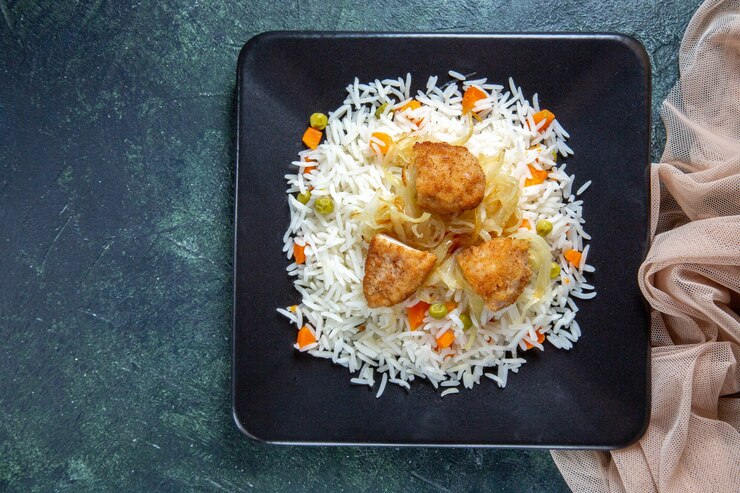Chicken Biryani, a popular and flavorful dish, is a staple in many households and restaurants. While its rich blend of spices and aromatic rice make it a delightful culinary experience, it's essential to be mindful of its nutritional content, particularly the calorie count. In this article, we will explore the calorie content of Chicken Biryani calories and provide insights into its nutritional aspects.
Understanding Chicken Biryani:
Chicken Biryani is a traditional South Asian dish that brings together marinated chicken, fragrant basmati rice, and a medley of aromatic spices. The preparation involves layering partially cooked rice with marinated chicken, allowing them to blend and cook together, resulting in a dish with complex flavors and textures.
Caloric Breakdown of Chicken Biryani:
The calorie content of Chicken Biryani can vary based on factors such as ingredients, cooking methods, and portion sizes. A typical serving of Chicken Biryani (about 1 cup or 250 grams) provides approximately 300 to 400 calories.
The caloric breakdown includes:
Basmati Rice: The primary source of carbohydrates in Chicken Biryani, providing energy. One cup of cooked basmati rice contributes around 200 calories.
Chicken: Chicken is a good source of protein, and its caloric content depends on the cut used and whether it includes skin. One cup of cooked chicken adds around 230 calories.
Ghee/Oil: The use of ghee or oil in Biryani adds to the overall calorie count. Approximately 1-2 tablespoons of oil or ghee can contribute around 120-240 calories.
Spices and Condiments: While spices enhance the flavor without significant caloric impact, condiments like yogurt used in marination can contribute additional calories.
Nutritional Components:
Beyond calories, Chicken Biryani offers various nutritional components:
Protein: Chicken is an excellent source of high-quality protein, essential for muscle development and overall health.
Carbohydrates: Basmati rice provides complex carbohydrates, supplying sustained energy.
Fats: The fats from ghee or oil add flavor and contribute to the overall energy content of the dish.
Vitamins and Minerals: Spices and herbs used in Biryani, such as turmeric, cumin, and coriander, may provide small amounts of vitamins and minerals.
Tips for a Healthier Chicken Biryani:
Use Lean Meat: Opt for lean cuts of chicken to reduce the overall fat content.
Limit Ghee/Oil: Control the amount of ghee or oil used in the preparation to moderate calorie intake.
Incorporate Vegetables: Add vegetables like carrots, peas, or bell peppers to increase fiber content and nutritional value.
Choose Whole Grains: Consider using brown basmati rice for added fiber and nutrients.
Watch Portion Sizes: Be mindful of portion sizes to manage calorie intake.
Our Service:-
Conclusion:
Chicken Biryani is a delicious and culturally significant dish that can be enjoyed as part of a balanced diet. While it provides essential nutrients, being aware of its caloric content and making mindful choices in preparation can help ensure that it remains a flavorful yet health-conscious option. Moderation, balance, and thoughtful ingredient choices can allow you to savor the delightful taste of Chicken Biryani without compromising your nutritional goals.





Comments